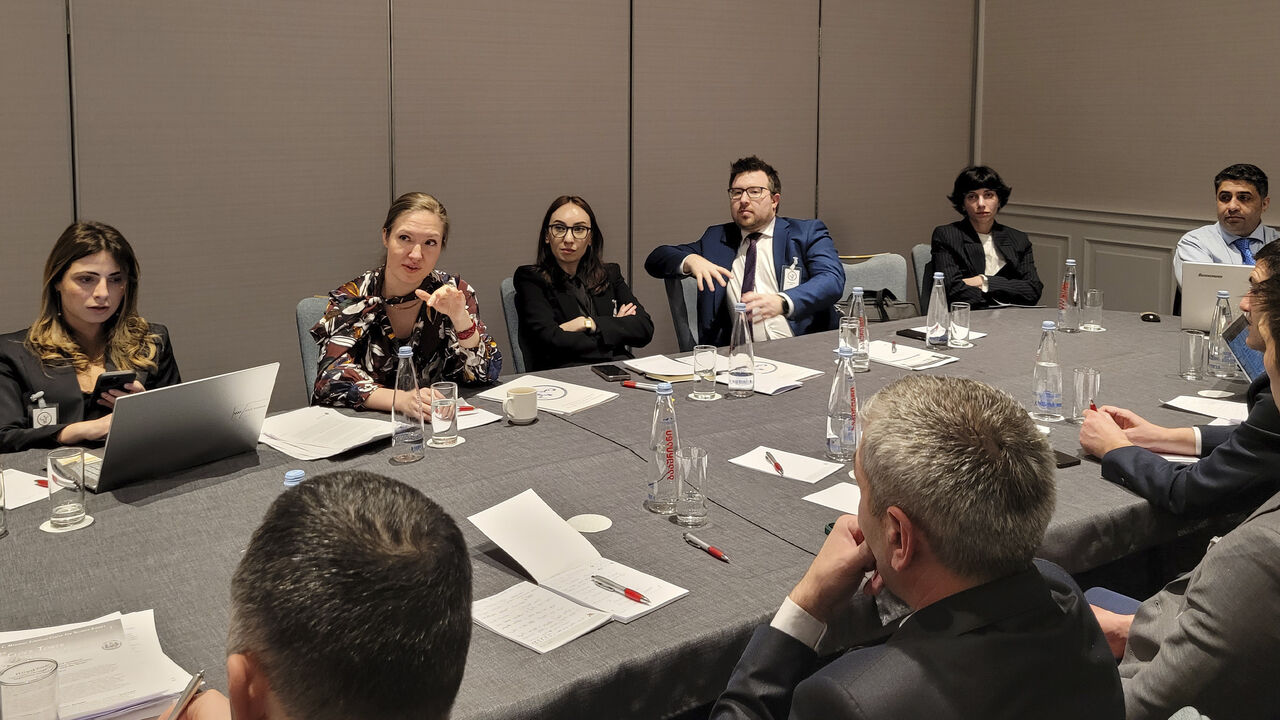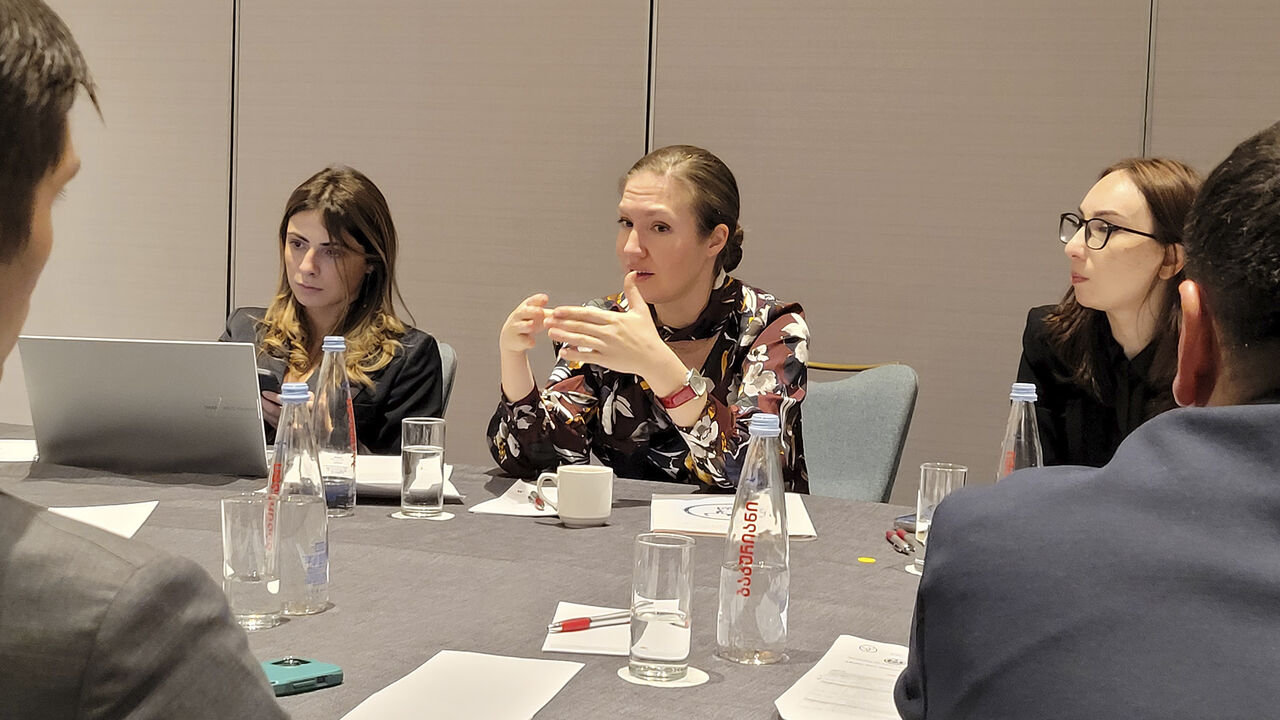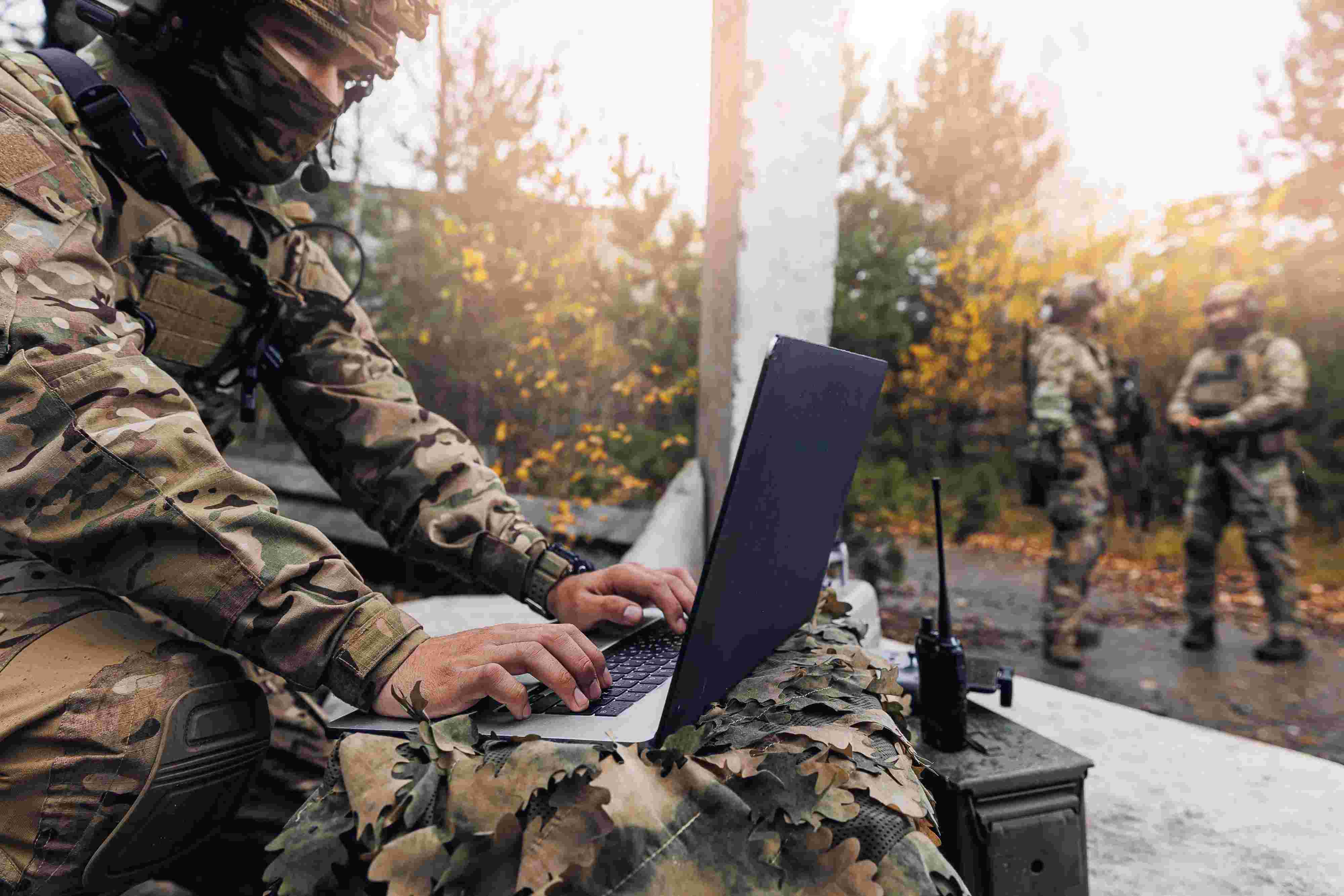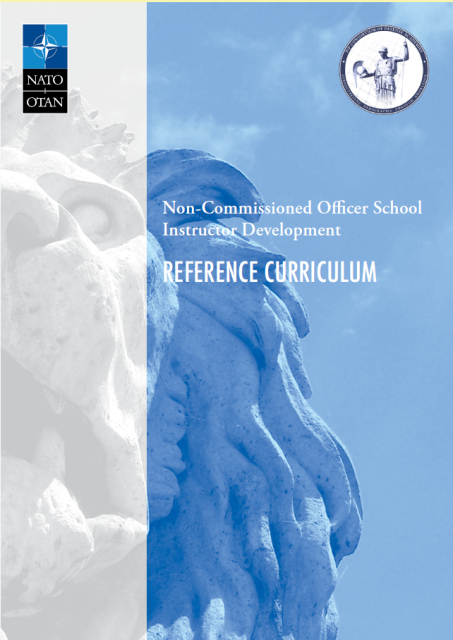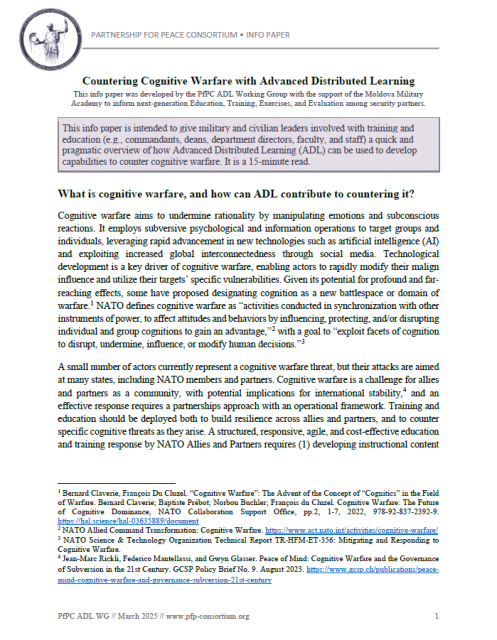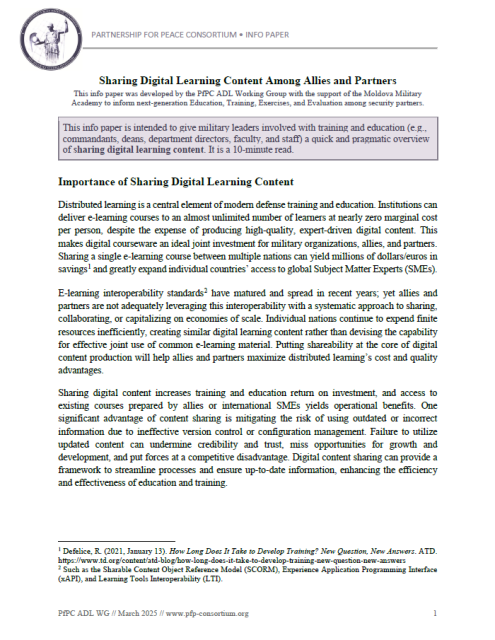
Tbilisi, Georgia - On Feb. 28, the Partnership for Peace Consortium's Emerging Security Challenges Working Group hosted a workshop in Tbilisi, Georgia, bringing together 40 participants from 9 countries across Europe and North America.
The workshop was organized in cooperation with the George C. Marshall Center and the Georgian Ministry of Defense. The topic was "Ukraine War’s Trajectories and their Implications for the Black Sea and South Caucasus Region." Participants dealt with the ongoing dynamics of the war in Ukraine, at the same time examining developments in Russia's political system and their impact on the broader region.
"Our workshop provided a timely platform for experts and practitioners to gather and explore potential future scenarios related to the conflict in Ukraine and implications for regional security,” said Dr. Graeme Herd, Professor of Research and Policy Analysis at GCMC.
The discussions highlighted the importance of continued dialogue and cooperation among international partners to address current and emerging security challenges in the region effectively. The Partnership for Peace Consortium remains dedicated to promoting peace and stability through cooperation and knowledge-sharing amongst defense and security professionals to address complex security issues. Workshops like this one play a crucial role in fostering understanding and cooperation in an ever-evolving security landscape.
You can learn more about the Emerging Security Challenges Working Group here.
